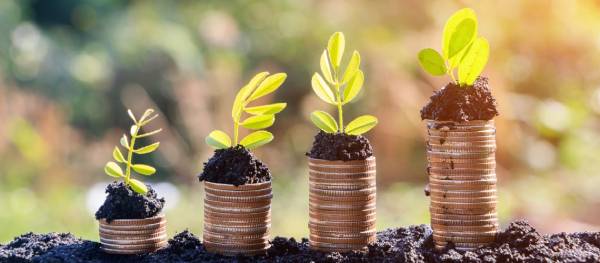
The antagonistic impacts of the pandemic combined with the former money and obligation emergency have tested Turkey’s monetary strength. Could the reception of manageable money could check a defining moment for the country’s delicate financial area?
It has not been a period of dependability for Turkey’s economy. Since 2016 when the nation encountered a bombed overthrow, ceaseless emergencies have made Turkey’s economy quite possibly the most defenseless in developing market. This, as indicated by Dominik Rusinko, an Economist at KBC Group, is a consequence of “confused, or altogether wrong monetary arrangements.”
Turkey’s peak bank has not been saved. In a range of two years, President Recep Tayyip Erdoğan has excused three lead representatives. The progressions have shaken monetary business sectors with unfamiliar financial backers progressively becoming jumpy when Turkey is in urgent requirement for inflows. “The future way of the Turkish economy stays questionable and rough especially without a more conventional monetary arrangement,” notices Rusinko.
As of late, Turkey has turned into a dear for financial backers because of a cognizant drive towards economical turn of events. As one of the nations generally influenced by environmental change, desertification and catastrophic events like dry seasons, floods and avalanches, the nation has made a shift towards manageability. Truth be told, regardless of being on the edges of the European Union, Turkey has accepted the push for net-zero ozone depleting substance discharges by 2050.
“Measures to boost a green recuperation, and start a green change, can maintain Turkey at an upper hand as worldwide business sectors decarbonise,” said Auguste Kouame, Turkey World Bank Country Director in April. He added that a more expanded and greener monetary framework would uphold a versatile, supported recuperation.
This is a test that Turkey’s banks are embracing sincerely. It exudes from the agreement that banks can possibly work with a green change by activating capital for manageable, green-drove development. For the business, environmental change and natural issues have turned into a significant wellspring of hazard and opportunity. “In the event that you don’t deal with the climate, the climate will deal with itself,” said Ahmet Can Yakar, ICBC Turkey overseeing chief, project finance office, during an economical money online course in April. Essentially, economical money is quick flourishing in Turkey, a country that is drawing in revenue from ESG-centered homegrown and worldwide financial backers and guarantors.
Indeed, not really set in stone to tap the $100trn worldwide security market after the public authority framed a securities ensure asset to urge organizations to give securities at lower costs. In Turkey, the all out security market is assessed at $3.1bn with green securities representing just $836m.
Manageable beginning stage
Following the public authority and financial backers, business banks are recognizing that manageable money will be the anchor for future development. Essentially many are forsaking financing of climate polluters like petroleum products, mining and segments of assembling, for green ventures in sustainable power, lodging, water and disinfection, training, wellbeing, metropolitan vehicle and portability, road lighting, horticulture and purchaser merchandise among others.
The change is prominent. In the course of recent years various banks have marked the UN’s mindful financial standards to execute supportability. Furthermore, a few monetary and non-monetary organizations have focused on giving supportability reports to raise financial backer mindfulness. Garanti BBVA, Turkey’s fifth biggest bank, is among loan specialists on the bleeding edge of feasible financing.
The bank has pledged to quit financing ‘grimy’ projects like coal and mines. Over the course of the following twenty years, the bank that gave a $50m green bond in 2019 plans to scrub its credit portfolio from these ventures prompting zero openness by 2040. This comes after the bank reported in February that it had reached $60.3bn in practical financing before last year’s over, eventually accomplishing half of its destinations a year early. The bank has an objective of $120.2bn of reasonable financing by 2025.
Another moneylender, the European Bank for Reconstruction and Development (EBRD), has placed green interests in Turkey top of its needs. Since 2015 when it dispatched its green economy change procedure, EBRD expects to expand interests in green ventures to 40 percent before the following year’s over, up from 30% in 2015, with yearly responsibilities of $4.8bn.
Eventually, the objective is for 60% of the loan specialist’s financing going towards green ventures. “Ventures that we finance should have quantifiable environment moderation components,” said Idil Gürsel, EBRD Associate Director, metropolitan and ecological framework. She added that tasks should lessen ozone harming substance outflows by somewhere around 20% or further develop energy productivity by something like 20%. In this light it appears to be that Turkey has unequivocally exhibited that it is focused on supportable turn of events.
In any case, late monetary and monetary troubles keep on projecting a foreboding shadow. With President Erdoğan’s strange financial strategies fuelling the vulnerabilities, banks and financial backers stay cagey.

Elena is a well known author. She is born and raised in Tampa. she graduated from The University of Tampa with an English and Creative degree. After beginning her career in content creation and copy writing, she joined the Financial Reporting 24.
Disclaimer: The views, suggestions, and opinions expressed here are the sole responsibility of the experts. No Financial Reporting 24 journalist was involved in the writing and production of this article.

